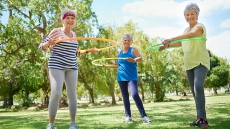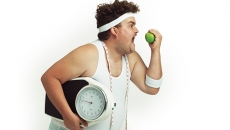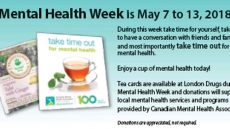In plain terms, egg freezing is a strategy for setting aside a woman’s best quality eggs of today, for potential use at a later time in life.
In today’s world, as more and more women are pushing marriage or childbirth to their 30s or 40s, egg freezing has become an ideal solution for those wanting a family later on in life. Dr. Niamh Tallon MB BCh BAO, FRCSC, an infertility and egg freezing specialist at Olive Fertility Centre, states that egg freezing has become more important to women as they are deferring attempts at pregnancy; waiting to meet their life partner, complete career or academic goals, or for a more financially stable scenario. She defines egg freezing, also known as human oocyte cryopreservation, in simpler terms as a “strategy for setting aside one’s best quality eggs of today, for potential use at a later time in life.”

Natalie Grunberg, CEO and Founder of Pantybypost.com, decided to freeze her eggs via Olive Fertility at the age of 37. “I froze my eggs because I wanted to preserve my fertility or have kids on my own. I had not yet met a man I wanted to marry or have kids with,” shares the 42-year-old who is now married and mother to an 8.5-month old. Today, like Grunberg, a lot of women are opting for egg freezing to safeguard their dream of having a family someday. “I highly recommend egg freezing to any women closer to 35, so you have more success. It’s a big step to pick a mate for life, and this way you know that if that’s what you want, you can also add a babe to the mix,” says Grunberg.
The goal of egg freezing is to increase a woman’s chances of having a baby in her later years and to overcome any fertility challenges that may arise then. “We consider the greatest increase odds of achieving success beyond your own chances, comes with freezing eggs younger than 30 years old and using them when older than 40 years old,” states Dr. Tallon. She further notes that the number of eggs frozen also determines the likelihood of success. “We can contrast 10 eggs frozen from a women under 38 years as having a 50% chance of a live born baby, to 5 eggs conferring them a 25% chance of a live birth when using these eggs at any future age.”

To better understand the method, Dr. Tallon shares inputs on three main aspects related to egg freezing:
The process of egg freezing
The process is easy, starting with a fertility assessment to ensure you are a candidate. Some preliminary blood tests and an ultrasound are arranged to estimate your own ability to make multiple eggs grow. This is important to know ahead of time, as your future chance of having a baby is based upon your age at freezing eggs and the total number of mature eggs frozen.
From initiating treatment, eggs are often harvested within 10-12 days. In this time, most women work and carry out their normal daily activities with minimising exercise. The commonest side effect is bloating towards the end of treatment as the ovaries become enlarged with many eggs maturing. Monitoring growth of the eggs is required with quick visits for ultrasounds and blood work on three to four occasions over this time. The procedure itself is approximately 15 minutes long. The eggs are frozen using a technique known as vitrification, which suspends the egg safely in a cryoprotectant. This allows for the highest chances of eggs surviving freezing and thawing.

Who should consider egg freezing?
Egg freezing is most beneficial to women who know they want children. It is primarily used amongst those unwilling to consider imminent pregnancy and when they are unwilling to proceed alone, as a single parent. For women who want more than one child, egg freezing will allow them the possibility of extending their family size beyond one to two children. When starting a family later in life, you are less likely to have more than one to two children. Many women attempting conception with advanced age will face infertility and require treatment like in vitro fertilization using their own eggs or possibly using donor eggs, from younger eggs with inherent better quality. Some younger women already have a reduced lifetime supply of eggs due to past exposures to chemo-radiotherapy or surgery, a medical condition causing the loss of their eggs or due to a strong family history of early menopause. Freezing eggs is often a relief in these scenarios, where the risk of running out of eggs is much greater than in the general population.

Effects of egg freezing
To date, there is no clear evidence that egg freezing negatively affects women. It is very important for clear discussion and understanding that no single egg freezing cycle carries a guarantee of leading to a pregnancy in the future. The biggest limitation of egg freezing comes with the finite number of eggs and not knowing if there is a genetically normal egg present to bring a live birth. The common physical side effects of treatment are self limiting and resolve within one to two weeks after the egg retrieval process. The risks of this procedure itself are very low (<1%) but include bleeding, infection and ovarian torsion or twisting of an ovary. Some women will have a lower than expected response despite initial testing results and this can leave women concerned for potential infertility in the future. Overall, these patients feel more positive about the process as they are doing something pro-active.
If considering egg freezing, women can ask for a referral from their general practitioner for a fertility assessment or discussion of fertility options. As per Oliver Fertility rates, Dr. Tallon informs that the cost of a single egg freezing cycle is approximately $7,000 and yearly storage is $300. As per data collected at Olive Fertility, there seems to be a growing awareness about egg freezing among women. “Between 2013 and 2017, the number of consultations per year had increased by 400% and we have seen more than 2,000 women for the purpose of a fertility assessment.” shares Dr. Tallon. Grunberg agrees, “There is more awareness because of more women like me sharing their stories, plus more people in general deciding to be proud of their experience and openly sharing.” She mentions further that there are many factors today that make it more and more important to get smart about one’s fertility. “Saving your eggs before your 35 is an investment in making your family come true. No one is going to do it for you, you have to make choices yourself and be empowered for it.”

Myths on egg freezing:
Freezing your eggs confers a guarantee of pregnancy in the future:
The more eggs frozen and from a younger age brings you a higher probability.
You should only consider freezing your eggs under the age of 38 years:
You could consider > 38 years once you understand the overall odds for success as being lower. Most women freeze 20 eggs at a single cycle: It is age and individual dependent.
Benefits of egg freezing:
Egg freezing allows a woman complete autonomy and full ownership of her eggs
She does not require a commitment to choosing a sperm donor
She can freeze her best quality eggs Allows time for decision making and life plans





